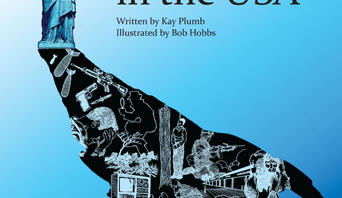
The stories we tell about ourselves shape our lives.
We build a psychic structure out of life stories, just like a carpenter builds a physical structure out of wood, and then we live inside that structure. "House," in dream analysis, stands for "the psychic space you're inhabiting."
The stories we tell about ourselves — our psychic structures — can be thoughtfully built over time, with an eye toward getting to the real truth of each situation. We can keep an eye out for leaks or weaknesses, and get to work repairing damage whenever we find it. In which case our psychic structures will be level and plumb, and will grow stronger with age, will settle solidly into themselves, so to speak.
Or the stories we tell about ourselves — our psychic structures — can be hastily assembled out of whatever comes to hand, more with an eye toward making an impression than with a regard for what really happened. We can paint over any problems or failures, just slap the story together instead of building it consciously, in which case our psychic structures won't be "on the level," but will be rickety and out of plumb; will grow more dangerous, more unstable, with each passing year.
Here's the bitter truth about being human: we all lie.
All we can do is try to figure out when we're lying and cut it out. (And, in self-defense, try to become more aware of when other people are lying to us. Try to be forgiving of each circumstance, without becoming susceptible to either.)
Building a sound psychic structure — a true life story — is a long process, a never-ending process. Because there's a shadow hard at work all the time within each of us trying to prove how innocent we are and how guilty everyone else is. The process is amazingly powerful and completely automatic. It's the ego's first, best and oldest line of defense.
Accepting and dealing with the falsehood in one's own heart has never been easy. And now, perhaps, has never been harder. We've reached some sort of crisis of untruthfulness. We seem to be approaching the acme of falsehood, collectively. We know the vast majority of people who appear in the news every day aren't even trying to be truthful. They're only trying to look cool, win points, gain power… and they're the famous ones, the "heroes" among us.
The macro reflecting the micro.












